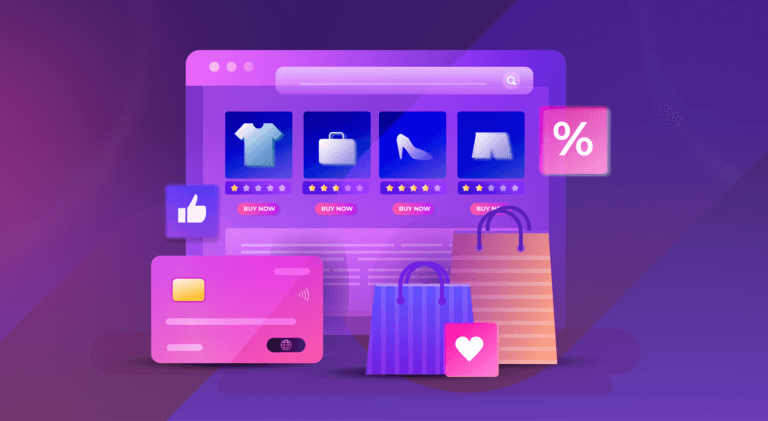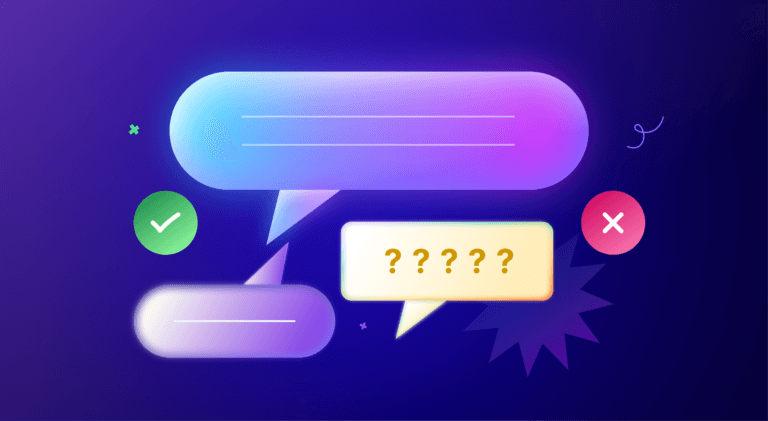Mobile Push Notifications: What Are They And Their Benefits

Engaging customers to use a mobile app is more difficult than designing one today. Also, once engaged, keeping them hooked time and again is as much of a task. It is easy to send a mobile push notification as part of your mobile marketing strategy, but you first need to identify and attract a target audience.
Mobile push notifications are probably the easiest way to communicate with your target audience because they are extremely effective. They have carved a niche in mobile marketing strategies, with the highest opt-in rate being enjoyed by the finance sector.
The Airship 2021 Push Notification Benchmark report states that opt-in rates for app push notifications are an average of 60%.

What are Mobile Push Notifications?
Mobile push notifications are short messages, often one-time passwords (OTPs) sent to customers. Such push notifications are also used to drive traffic and enhance revenues by getting users back to the mobile app or website.
These mobile app push notifications are generally customized messages meant for a specific user and must be secure. However, a customer has to either sign-up or be okay with receiving alerts before you can send them.
A mobile push notification is more like a text message and can be sent to users even while they are offline. Users may see them at the bottom of the screen, or the top, depending on the configuration of their device.
The Benefits of Mobile Push Notifications
Marketers stand to get several benefits from a mobile Apps notification. Here are some of the primary benefits:

1. Reaching users at a specific time
Whether an OTP from a cab aggregator, trending stories, or breaking news, they need to be delivered within a precise time framework to be effective. A mobile web push notification does precisely that. No wonder brands use push notifications to announce the launch of a new product by sending personalized messages to their customers.
Another benefit of a mobile app notification is that it can be distributed instantly, helping marketers stand out in the stiff competition in the marketplace. Push notifications are direct (unlike social media notifications) and help marketers build a one-on-one relationship with users.
Furthermore, your customers do not need a technical background or even the internet to receive mobile push notifications. According to a survey, push notifications outweigh email notifications, and they boast a 50% increase in open rates and a 93% increase in retention rates.
2. Engaging users with content
If email notifications are known to be doing well, push notifications are even better because they are direct-to-customer and are opened almost instantly. What’s more, is the content in the notification can be curated to match users’ preferences and behaviors. It is easy to scale push notification campaigns, leading to increased brand awareness, better customer retention, and higher conversion rates.
Marketers send push notifications as reminders to retarget users who left an action incomplete (e.g., shopping cart checkout), sign up for a newsletter or subscription, or agree to start a free trial. Brands also use a mobile push notification to alert their customers about an upcoming event, discounts, or even a forecast on the day’s weather.

3. Reengaging users to get them back on the website
Most marketers use mobile web push notifications to reengage users to get them back on the website or mobile app. Users appreciate thoughtful reminders, personalized offers, and trending news reaching them through push notifications. Push notifications help marketers get their customers to engage with their content, and that’s probably why some gaming companies prefer to automate push notifications to keep gamers updated on the trending games. Gaming companies can also schedule notifications in advance to reach users in their respective time zones.
As noticed, the content of the push notifications is of utmost importance to engage viewers. Go for professional content writing services for mobile app content, website content writing, or email content writing.

4. Increasing revenues
A mobile push notification is not just about driving organic traffic to your website. As a marketer, you can use it as a potent monetization tool to help increase your revenues. It is not surprising that push notifications are guaranteed because users tend to open them the instant they pop up on their screens. It is one of the biggest selling points for marketers. For example, a sportswear company sponsoring an online sports magazine’s push notification to persuade users to try a new product.
The best part is that customers too are cool about receiving push notifications, as is evident from research by Mantis that reports that 75% of the users are okay with push notification ads while browsing.
Push notifications are not meant just for mobile apps; they can be used to engage users from their desktops as well by reaching out through a website. Push notifications present untapped potential for marketers seeking to enhance user engagement and drive revenues.
Every marketer must consider including push notifications as part of their marketing strategy to build better customer relationships and enhance revenues. You can even automate your push notifications to save time and money.

FAQs
Push notification on Android, or a mobile push notification, is a message displayed on your mobile phone. Also known as a mobile web push notification, it is not part of your mobiles user interface (UI). It is usually a time-sensitive notification carrying a critical message meant for the specific user (mobile phone user) of an Android hand-held device.
Push notifications are typically messages sent from a mobile app to users who can view it on the mobile phone screen. Of course, the user must have the app downloaded and opted in to receive push notifications. Today, Android opts users to receive push notifications automatically. However, Android users can disable push notifications if they don’t wish to receive them.
Marketers use push notifications to convey a crucial reminder about an important event. People expect such a mobile Apps notification, especially an OTP (one-time-password) which has to be used to complete a specific task. The message may be to convey a change in a travel plan, a cab booking confirmation, delivery of ordered goods, or any such time-specific event.
You are at liberty to turn off your mobile Apps notification any time you want. However, a mobile push notification is sent very subtly, and you hardly notice that you have received a notification. You can also select the “show silently” option without disabling the push notifications. A Carnegie Mellon University study indicates that it is beneficial to turn off mobile Apps notifications for 24 hours, once in a way.
While a mobile push notification is essential for conveying a critical, time-sensitive message, it is often used to increase revenue by building audience relationships. Marketers believe that they can use mobile Apps notifications to get their users to return to their website or app time and again. Mobile web push notifications help increase user engagement and are one of the best ways to grab users’ attention.
Latest Blogs
Learn how to rank on AI search engines like ChatGPT, Perplexity, and Gemini by optimizing your content for authority, structure, and relevance. Stay ahead in AI-driven search with this strategic guide.
Explore the best healthcare SEO services for your medical practice. Improve online visibility and effectively reach more patients in need of your services.
Discover top social media agencies specializing in banking solutions, enhancing financial services and driving engagement.
Get your hands on the latest news!
Similar Posts

Content Marketing
4 mins read
11 Best B2B Content Marketing Agencies for B2B Companies in 2024

Content Marketing
5 mins read
Top ecommerce Marketing Agencies with Proven Strategies for 2024

Content Marketing
5 mins read